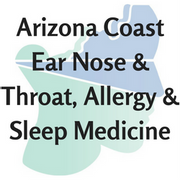4 FAQ About Food Allergies Answered

Food allergies are one of the most common problems people face in everyday life. While some cases are mild, others require professional allergy treatment. Despite this, scientists are still trying to learn about the source and best coping methods for this problem. Their most pertinent discoveries are discussed in the guide below.
What to Know About Food Allergies
1. What causes food allergies?
The immune system is meant to eradicate potential threats to your overall health. However, it sometimes mistakes certain foods as dangerous and overreacts in an attempt to defend your body. It’s not clear what makes the immune system misidentify certain foods in this way. However, it may have something to do with a combination of the proteins in the food, genetic predisposition, and introducing solid foods to babies before they’re seventeen weeks old. Thyroid problems can worsen existing allergies.
 2. What are the most common food allergies?
2. What are the most common food allergies?
Many people are allergic to dairy products made from cow’s milk. Unfortunately, several people are also allergic to one of its substitutes—soy. Seafood, including both fish and shellfish, is also a well-known allergen, as are wheat and eggs. Tree nuts and peanuts, while technically different from each other, find common ground in the fact that they can cause adverse reactions in a significant portion of the population.
3. How do bodies react to food allergies?
Mild reactions include rashes, hives, and swelling in the mouth, tongue, or face. Some people also experience diarrhea, vomiting, and dizziness, or even fainting. The most severe and life-threatening reactions are a severe drop in blood pressure, throat constrictions, and respiratory problems. Some reactions begin immediately upon ingesting the food, while others are delayed. Either way, allergy treatment is necessary immediately upon the onset of symptoms.
4. Are there options for allergy treatment or prevention?
Since the specific cause of food allergies is unclear, it’s hard to say how to prevent them. There seems to be a correlation between healthy immune responses to food and exclusive breastfeeding for the first six months of a child’s life.
If an allergy has already developed, the safest way to evade reactions is to avoid the foods that trigger them. Otherwise, it’s prudent to have epinephrine auto-injectors available at all times, which should be injected into the body once symptoms start. Thyroid problems should be treated, reducing sensitivity to trigger foods. Fortunately, some people grow out of specific allergies over time. Work is currently being done by scientists to find more treatment and prevention options.
You can find specialized allergy treatment for any food allergy by visiting Arizona Coast Ear, Nose & Throat in Lake Havasu City and Mohave County, AZ. Staffed by knowledgeable and committed ear, nose, and throat doctors, they can help you cope with any results from coming into contact with allergens, including sinus problems. Learn more about their services today by calling (928) 854-5368 or exploring their website.
About the Business
Have a question? Ask the experts!
Send your question

